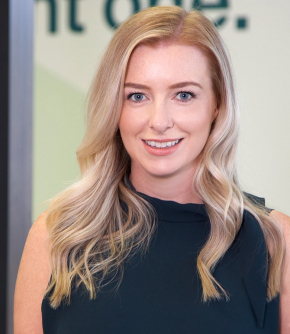Laura Grierson – The West Australian
Director Acacia Executive Search
Laura Grierson: If corporations want our trust then lessons must be learnt.
Market research released by Roy Morgan earlier in 2023 revealed that Australia’s distrust of corporate Australia was at an all-time high.
Questionable behaviour under the guise of COVID set the decline in public sentiment in motion but 2023 has seen trust plummet off the back of economic uncertainty, successive data breaches and corporate scandals.
Top of the naughty list are PwC, Qantas, Medibank, Rio Tinto, Optus and Telstra.
If corporate Australia’s new year’s resolve is to redeem itself, then lessons must be learnt.
Firstly, boards mustn’t overlook relevant industry experience when hiring leadership.
Take ex-banking heavyweight Kelly Bayer Rosmarin being hired as Optus’ CEO. Aside from a tenuously relevant stint at Oracle, she lacked the industry expertise to sit at the helm of a national telecommunications company.
As the shadow of two crises within a year — a major cyberattack and a day-long network outage loomed over Bayer Rosmarin, I can’t help but wonder who really shoulders the blame here?
In this increasingly digital age, the handling of our data continues to pose challenges for businesses and requires leadership equipped to do so.
However, telecommunications and public policy expert, Mark Gregory explains that we have a tendency in Australia of putting lawyers and accountants in charge of technology companies, and there are no examples of this aiding those companies or their customers.
Surely it is the board’s responsibility to ensure the executives they hire have the required skillset to meet the unique challenges our ever evolving world presents or at minimum where gaps exist, that they are flanked by the necessary experts.
Next up, the PwC tax leak scandal highlights the need to reassess how we structure our boards in Australia.
It came to light earlier in the year that confidential government tax plans were leaked by a PwC partner in order to win work with global businesses looking to restructure their Australian tax affairs. As an unlisted entity, PwC’s board is made up of only the CEO and partners.
This clearly stifled independent decision making and the ability to mitigate potential conflicts of interest. The issue lies in Australian boards adopting a unitary system whereby one corporate body undertakes both the management and monitoring functions of a company.
PwC isn’t an isolated example and clearly this model isn’t working.
Many other countries use the two-tier board of governance model where two separate bodies, the board of directors and the supervisory board, operate independently. If corporate Australia is to remain competitive, we need to see better flexibility in the way boards are structured.
The third lesson comes from our fallen kangaroo, Qantas.
Despite the airline turning more profit than ever, it has polled as one of the nation’s most distrusted brands after a string of scandals which have landed them in the Federal Court. Before the airline’s CEO stepped down in September, he spent 15 years firmly in the spotlight while other key members of the board held a limited public presence, and they have been accused by some as merely rubber-stamping Joyce’s decisions in the name of profit.
While it’s a board’s job to enable and support its CEO, there needs to be a healthy level of dissent to reach best outcomes.
Research on decision-making, boards and group dynamics proves that diversity improves decision-making.
When one digs deeper into the makeup of Qantas’ board under Joyce, gender parity is where any real diversity ends. They were all over 50, mostly long-serving and much of the same independent director and professional governance type you see across Australian boardrooms with AICD designations.
It could be argued that a more diverse boardroom would have likely brought in some more dissenting voices. It will be interesting to see what the next iteration of the Qantas board looks like as they perform a necessary shake-up under the tutelage of Joyce’s replacement, Vanessa Hudson.
As corporate Australia reflects, repairs and rebuilds in 2024, it would be wise to start with our boards.
Does leadership have the adequate industry experience to navigate a crisis? Would we benefit from a dual board structure like so many other countries? Is our board diversity a box ticking exercise or does it actually foster a range of perspectives?
If we’re not considering any or all of these questions, then to my mind, we’re not learning any real lessons from 2023… and if corporate Australia is to be trusted again, then learn from it we must.
Laura Grierson is the director of Acacia Executive Search
